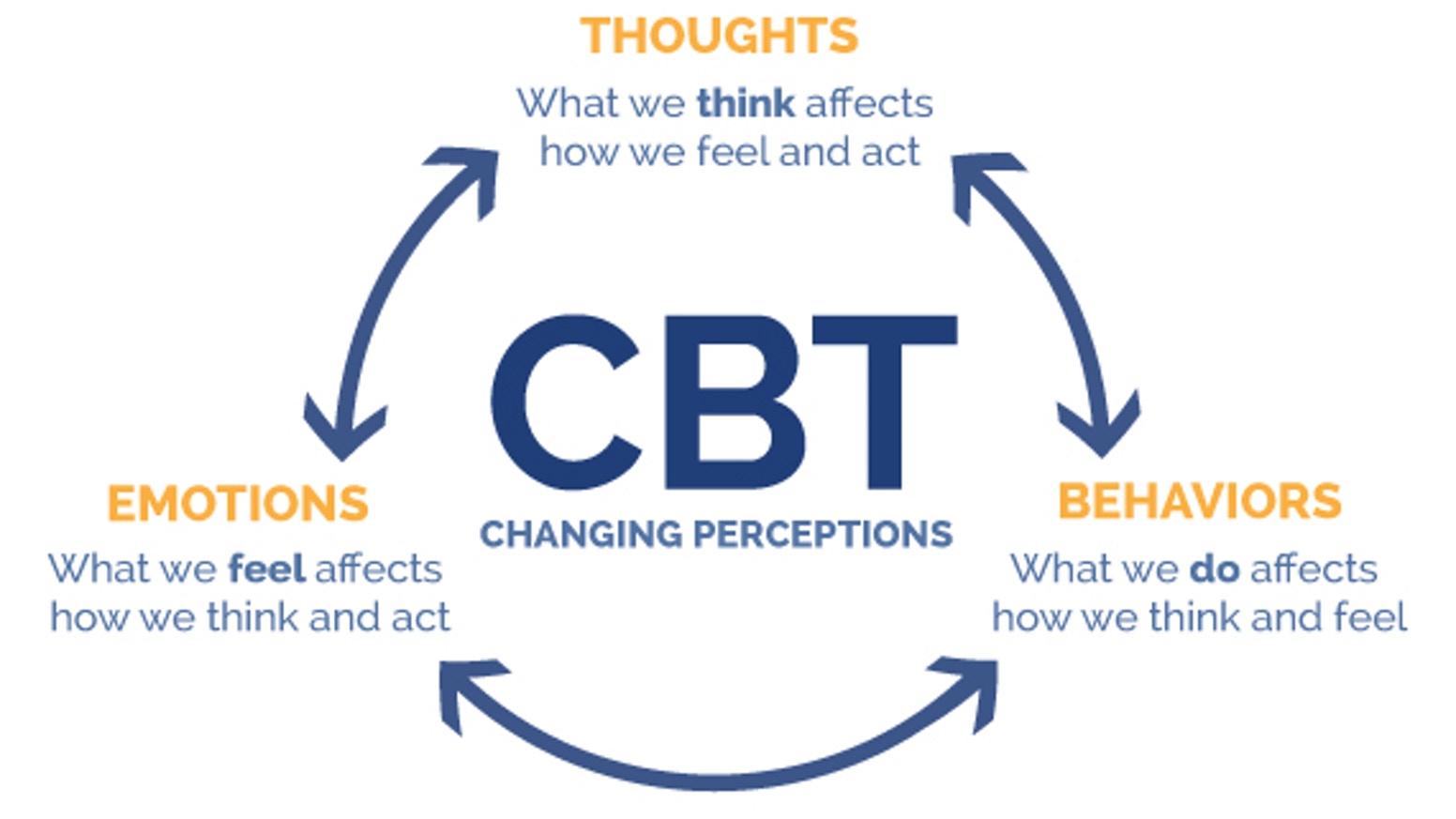What is Cognitive Behavioral Therapy (CBT)?
Cognitive Behavioral Therapy (CBT) is the method used for psychotherapy at CBH Partners. Treatment is based on a blend of traditional evidence-based cognitive and behavior therapies, as well as newer mindfulness and acceptance-based techniques:
Traditional CBT: identifying and changing unhelpful or inaccurate thinking, and problematic behavior.
Mindfulness-Based Cognitive Therapy (MBCT): focusing less on reacting to incoming thoughts and feelings, and instead accepting and observing them without judgment.
Acceptance and Commitment Therapy (ACT): increasing psychological flexibility and movement toward valued behavior.
How Does CBT Work?
CBT is generally a present-oriented and time-limited psychotherapy, in which an individual attends regular appointments over the course of 3-6 months, with follow-up sessions scheduled as needed. Cognitive Behavioral Therapy makes effective use of a client’s time in each session, following an agenda rooted in an individualized treatment plan. A typical, structured therapy session assesses a client’s mood, gets an update on specific clinical topics related to the treatment plan, including homework, provides feedback about one’s progress, and plans homework for the next session.
A collaborative, “teacher-student” treatment plan is developed for each client at CBH Partners consisting of goals, assessments, and interventions as the foundational elements. First, a client proposes behavioral (action), emotional (feeling), and cognitive (thinking) goals. Clients then match their goals to subjective and objective (e.g., standardized questionnaires) measurements toward attaining their desired goals. Treatment plans ultimately link articulated goals to specific, evidence-based CBT interventions, leveraging both classic and cutting-edge methods.
Additional treatment plan details include length of treatment, collaboration with other healthcare providers, as well as medication monitoring, if appropriate.
As therapy progresses, the link between how a client’s past experiences contribute to habitual and maladaptive patterns of thinking (schemas), feeling (negative affect), and doing (scripts) is revealed and incorporated into their treatment plan. Utilizing the aforementioned Cognitive Behavioral Therapy techniques, clinicians at CBH Partners aim to develop adaptive ways of thinking, feeling, and interacting with the “here-and-now” world, to help clients achieve optimal mind-body health.




